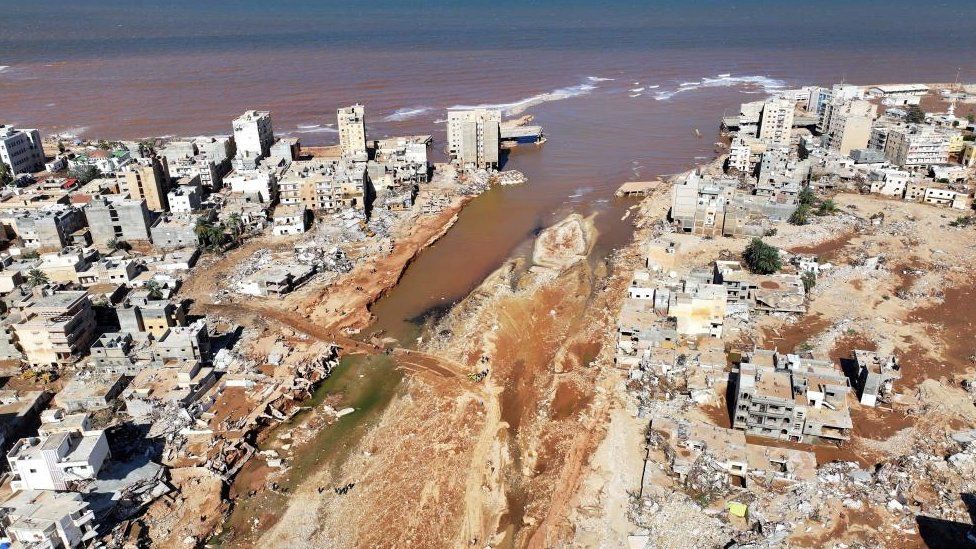-

-
-
Loading

Loading

An official from eastern Libya has refuted claims that many of the flood victims were told to stay in their homes. Othman Abdul Jalil, a spokesperson for the Benghazi-based government, stated that soldiers in the city of Derna actually warned people to evacuate. He acknowledged that while some may have felt the threat was exaggerated, there was no instruction for people to stay at home. The lack of international aid agencies in Derna has been highlighted by BBC teams on the ground, who have reported little activity from major organizations. Aid operations in Libya have been described as "a nightmare" by a spokesperson from the International Federation of Red Cross and Red Crescent Societies. The floods have further complicated the situation by destroying essential infrastructure like roads and telecommunication systems. The death toll from the floods varies widely, with estimates ranging from 6,000 to 11,000, and Derna's mayor has warned that it could reach 20,000 as more people are still missing. Additionally, some bodies have washed ashore more than 100km away from Derna after being swept into the sea. The United Nations humanitarian office stated that survivors and bodies are still under the rubble, making it difficult to determine the true number of casualties. The priority is now to prevent a health crisis and provide shelter, clean water, and food. Over 1,000 people have been buried in mass graves according to a UN report, but the World Health Organization has urged against hasty burials in mass graves due to the potential mental distress it may cause for grieving family members. The floods were a result of two dams bursting after Storm Daniel hit on Sunday, causing neighborhoods to be washed away into the Mediterranean Sea. The political division in the country between rival governments in Tripoli and Benghazi is further complicating the recovery efforts. Criticism has been directed towards the lack of maintenance of the collapsed dams, and there are conflicting reports about when and how people were instructed to evacuate. Derna's Mayor Abdulmenam al-Ghaithi claimed to have personally ordered the evacuation days before the disaster, but this could not be verified by the BBC. Survivors have told the BBC that police and military were instructing people to leave their homes as the weather worsened, but many did not take the threat seriously. Othman Abdul Jalil stated that some people ignored the warnings, believing that the situation was exaggerated. There are also allegations that officials used Libyan television to order people to stay in their homes due to the bad weather, which the attorney general denied. While it is still too early to definitively attribute the severity of the storm to rising global temperatures, experts suggest that climate change is likely increasing the intensity of such storms. The disaster serves as a reminder of the challenges posed by climate change, according to top UN official Martin Griffiths.